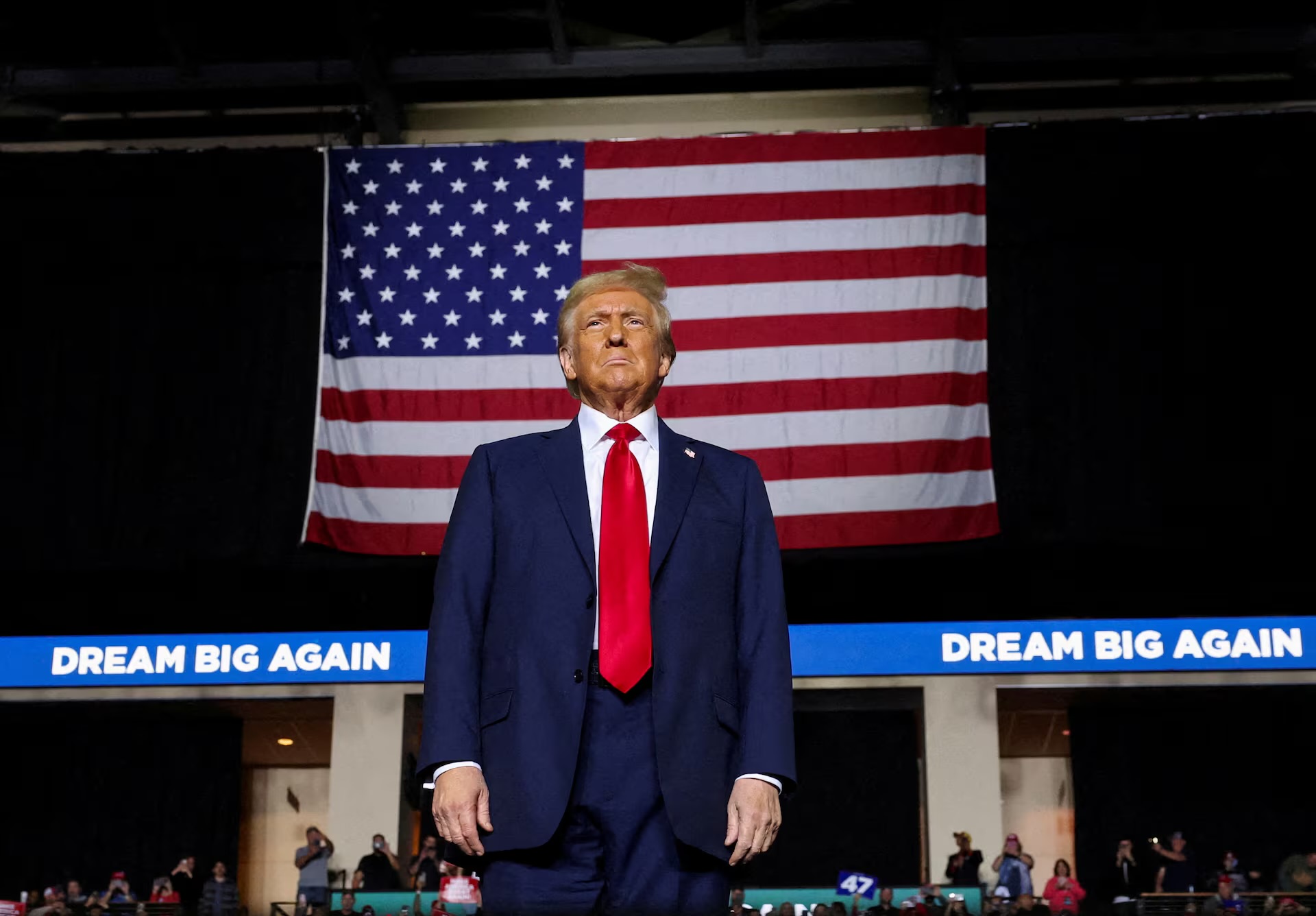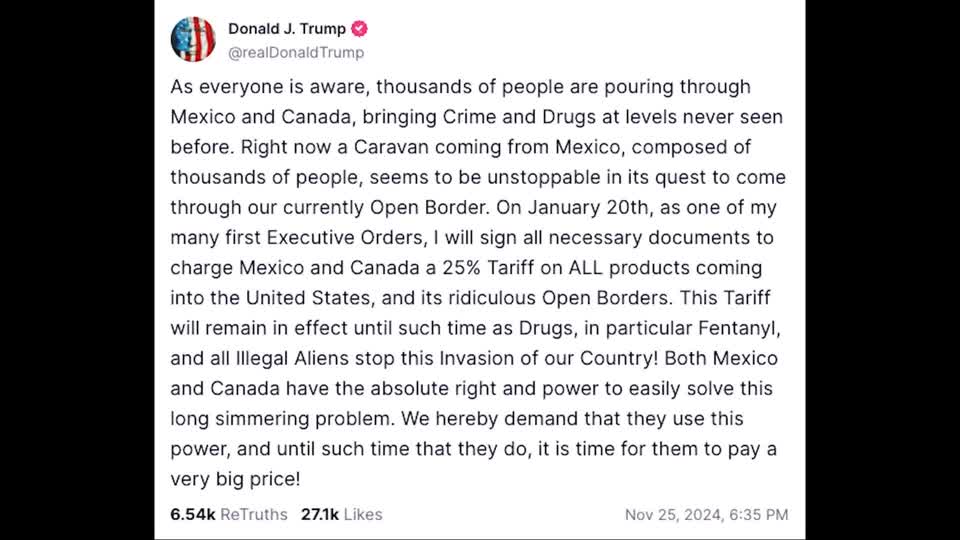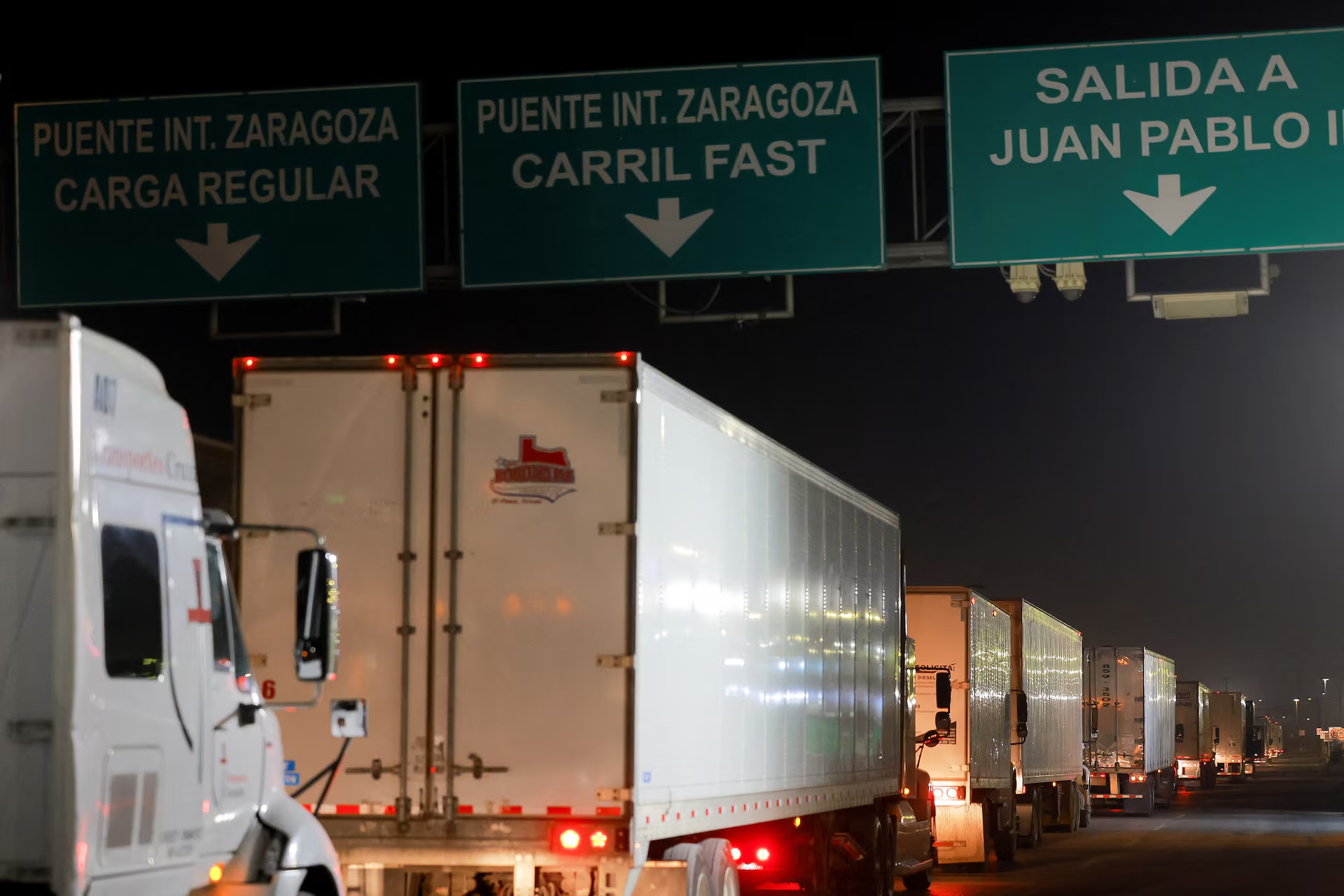President-elect Donald Trump announced on November 25 that he intends to impose tariffs on the United States' top three trading partners—Canada, Mexico, and China—fulfilling campaign promises that may lead to trade disputes, Reuters reported.

Trump, who will take office on January 20, 2025, stated that a 25% tariff would be placed on all products from Canada and Mexico unless both countries take stronger actions to curb the flow of drugs, especially fentanyl, and stop illegal migration. This move could potentially breach the U.S.-Mexico-Canada Agreement (USMCA), a trade pact that guarantees largely tariff-free commerce between the nations.
In addition, Trump outlined plans for a further 10% tariff on Chinese goods, adding to existing tariffs as part of his economic agenda, which he has promised to implement after taking office. These new measures are designed to address what Trump refers to as unfair trade practices and to reinforce his "America First" policy.
The proposal targeting Canada and Mexico has raised concerns among trade experts, as it could upset long-standing agreements. Mexico’s Finance Ministry emphasized the importance of the USMCA framework, calling it a stable platform for national and international investors.

Furthermore, Trump’s comments on the matter were shared widely on his social media platform, Truth Social, where he accused both Canada and Mexico of contributing to crime and drug flows into the U.S. He made clear that the tariffs would remain in place until both nations addressed these issues.
In his social media post, Trump argued that the U.S. faced an ongoing crisis with drugs and illegal immigration, accusing Canada and Mexico of allowing these issues to continue unchecked. He stressed that both nations had the capability to solve these problems and would face economic penalties until they did so.
"On January 20th, as one of my first Executive Orders, I will sign all necessary documents to charge Mexico and Canada a 25% Tariff on ALL products coming into the United States," he wrote. "This Tariff will remain in effect until such time as Drugs, in particular Fentanyl, and all Illegal Aliens stop this Invasion of our Country!"

Although Canada and Mexico have been key U.S. trading partners, the new tariffs would complicate relations, especially with the USMCA agreement in place. In 2023, more than 80% of Mexico’s exports went to the U.S., and Canada’s exports to the U.S. accounted for roughly 75%. These economic ties make any tariff-based sanctions significant.
Mexico's Finance Ministry, in response to Trump’s comments, reiterated the value of the USMCA agreement. "Mexico is the United States' top trade partner, and the USMCA provides a framework of certainty for national and international investors," the ministry stated.
Canadian officials have not responded directly to Trump’s tariff proposal, but historically, both nations have engaged in tense trade discussions, especially during the USMCA negotiations.

Trump’s comments also extended to China, where he proposed an additional 10% tariff on Chinese goods. This is part of his broader economic policy that has been a cornerstone of his approach to trade. China, which has been a focal point of Trump’s trade policies in recent years, remains a key target in his vision for reshaping U.S. trade practices.
In addition to his formal policy announcements, Trump continues to use his social media platform, Truth Social, to reach his supporters and share his views on trade, immigration, and other key issues. While Truth Social has struggled to gain mainstream traction compared to platforms like X (formerly Twitter), it has become an important tool for Trump to directly communicate with his base.
Follow Daryo's official Instagram and Twitter pages to keep current on world news.
Comments (0)